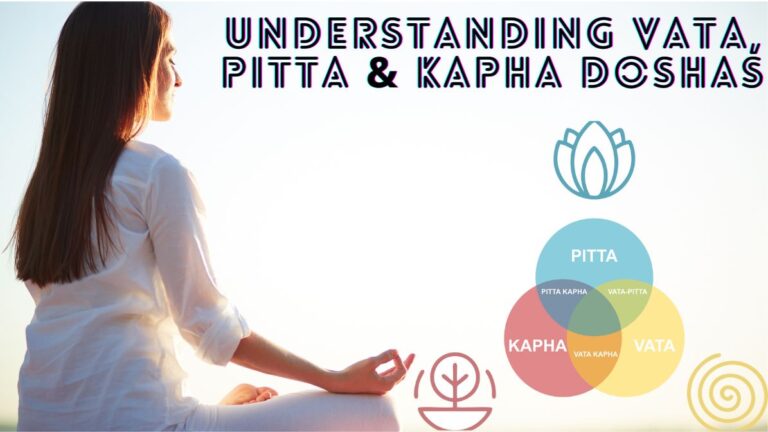Myths & Facts about Ayurveda

Due to a lack of Knowledge, various Myths and rumors surround Ayurveda. Here, we will discuss Myths and Facts about Ayurveda based on books, Journals and studies conducted in Ayurveda.
Ayurveda is not based on scientific evidences?
Ayurveda is based on scientific evidences as various researches have been conducted in the field of Ayurveda as well as other important researches are ongoing in prestigious Ayurveda institutions like All India Institute of Ayurveda (AIIA) New Delhi & National Institutes of Ayurveda (NIA) Jaipur. Ministry of Ayush has launched Ayush Research Portal in view of evidence based reserch data for Ayush System of medicine
Ayurveda does not include research.
Ayurveda includes observational research. There are two types of researches evidence based and observational research. Ayurveda is observational research based science i.e. a research technique where you observe participants and phenomena in their most natural ways.
Ayurveda medicine are slower in action and ineffective.
Ayurveda medicines are very effective and its action depends upon the condition of illness as well as patient strength. If the period of disease in short it may work very effectively and quickly equivalent to modern medicine but if the disease is chronic and duration of illness is long then the ayurveda treatment will take time to show result. because it take time to balance Vata, Pitta , Kapha Doshas and dhatus (essential body tissues) as well as Prakruti sthapan (प्रकृति स्थांपन) i.e maintain body prakruti in natural form.
Ayurveda does not cure Autoimmune disorder.
Ayurveda plays a very important role in managing autoimmune disorder like Sjogren’s syndrome, Bullous disease.
Ayurveda is Pseudoscience?
Ayurveda is not Pseudoscience. This is a method of medicine that has been envisaged over thousands of years through observation, experimentation, and clinical practice. It involve complete understanding of the human body i.e. physiology, anatomy, and biochemistry.
It is based on observation research design & evidence based researches are also ongoing in various prestigious Institutes of Ayurveda.
Ayurveda is not effective in chronic disease.
Ayurveda have great potential in treating chronic diseases and improving quality of life of patient specially in those cases as well where modern medicine treatment is unable to do so. examples are Avascular necrosis of hip, Ankylosing spondylisis etc.
Ayurveda medicine doesn't have side effects
Ayurvedic medicine do have side effects If not taken under supervision of qualified and experienced ayurvedic practitioner. These are not over the counter medicine.
Ayurvedic treatment doesn't need a doctor
Ayurvedic medicine must be taken under registered practitioner as these medicine may have side effects. Moreover in Ayurveda treatment of any specific disease may differ as per person Prakruti (प्रकृति) i.e Constitution of individual body. Therefore you should not take Ayurvedic medicine over the counter or by internet search as it may not show good result rather can harm your body also. You must always visit to qualified Ayurveda Practitioner for any treatment.
Ayurvedic medicine are costly
All Ayurvedic medicine are not costly. Some are costly depending upon the formulation it contains. Medicine that contains rare herbs and inorganic constituents are costly.
More than 90 % of cases visit to Ayurveda practitioner in very late stages of diseases basically when diseases are in chronic phase so in these cases practitioner needs to use Rare herbs, RAS Aushadhi, Bhasm (Ash oxides of gold, silver & diamond) which become costly.
Ayurvedic is only treating disease
Ayurveda not only treating disorder but also promotes overall well being. It is Holistic system of medicine which highlights how important it is to achieve balance in the body, mind, and spirit in order to attain optimal health.
Ayurvedic have no specialty branch in its education like ENT, Pediatrics, surgery etc
Ayurveda has special Post Graduation branches similar to modern medicine system. M.D. or M.S programs of 03 years duration run all over India in Ayurveda P.G colleges. Some common P.G. courses are ENT, Obstetrics & Gynaecology , Pediatrics, Medicine, Panchakarma, Surgery etc.
Ayurvedic medicine have no expiry
According to Drug & cosmetic rules 1945 section 161B there is expiry date for all Ayurvedic medicine mentioned on the label. Therefore you must take care while buying Ayurvedic medicine.
Ayurvedic medicine have no standard protocol (procedure) for its formation
Good Manufacturing Practices (GMP) for Indian System of Medicine are a set of guidelines that ensure the quality of Ayurvedic medicine. GMP’s are mentioned in Schedule T of Drug & cosmetic Act 1940.
Ayurvedic is not a legal practice. Anyone can practice Ayurveda.
Ayurveda is legal practice that has practitioners who are Educated, well-equipped and trained. Minimum B.A.M.S course having 4.5 year study along with 01 year of Internship is required to practice Ayurveda. Moreover P.G. Courses of 03 years are also run for specialty in Ayurveda. Some diploma courses are also available after B.A.M.S.



